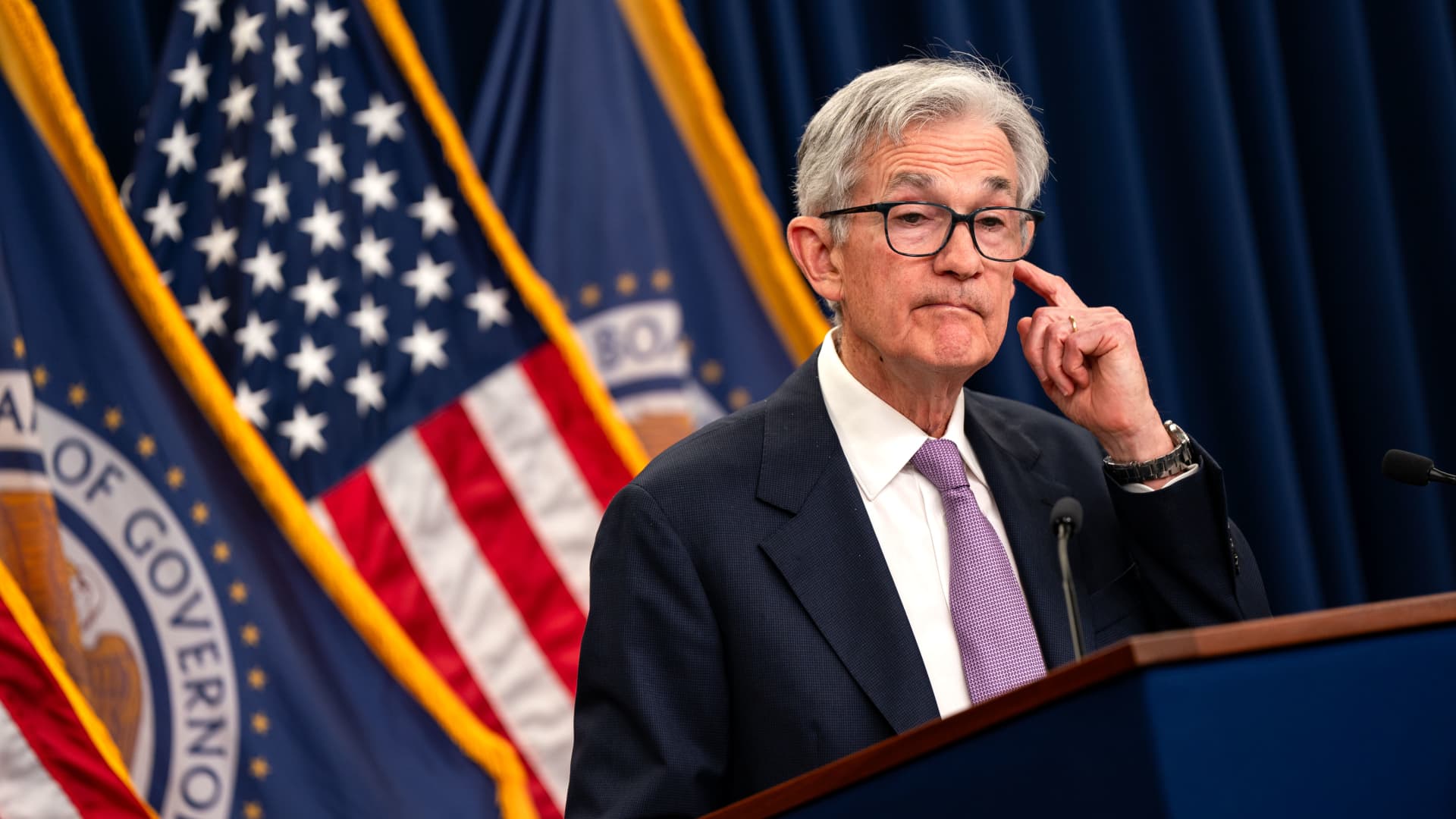Federal Reserve Board Federal Reserve Chairman Jerome Powell speaks during a news conference following a Federal Open Market Committee meeting in Washington on November 07, 2024 in Washington, DC.
Kent Nishimura | Getty Images
This report is from today’s CNBC Daily Open, our international markets newsletter. CNBC Daily Open brings investors up to speed on everything they need to know, no matter where they are. Like what you see? You can subscribe here.
What you need to know today
Fed cuts rates by 25 basis points
On Thursday, the U.S. Federal Reserve cut interest rates by 25 basis points, or a quarter percentage point, bringing the target range to 4.50%-4.75%. At the Fed’s news conference, chair Jerome Powell told reporters he would not resign if requested by Donald Trump, and that Trump does not have the power to fire or demote him.
Bank of England lowers rates
The Bank of England also lowered interest rates by 25 basis points to 4.75%. Eight out of nine members of the central bank’s Monetary Policy Committee were in favor of the move. That said, the BoE thinks inflation will rise by 0.5 percentage points to touch around 2.75% next year, more than it previously forecast, because of the Labour Party’s budget.
Momentum behind markets
U.S. markets continued advancing on Thursday, propelled by postelection momentum. The pan-European Stoxx 600 index added 0.62%. The FTSE 100 slipped 0.32% after the BoE warned of higher-than-expected inflation next year, while Germany’s DAX rose 1.7% as Chancellor Olaf Scholz fired his finance minister, bringing the ruling coalition to an end.
How Musk stands to benefit
Elon Musk campaigned strongly for Trump. Now that Trump is president-elect, Musk stands to benefit from the relationship. Lawsuits against Musk’s companies, for instance, might wind down because of the executive branch’s outsized control over federal regulatory bodies, while government bodies might work with Musk’s companies more.
[PRO] ‘Year-end rally starts today’
The S&P 500 shot up on Wednesday and continued rising Thursday. While the election results have caused excitement in the markets, the rally has also been driven by other factors like seasonality, corporate decisions and hedging strategies. “The year-end rally starts today,” said Goldman Sachs on Wednesday.
The bottom line
Wednesday’s postelection rally, during which the S&P popped 2.53%, was the best postelection move in the index’s history, according to Deutsche Bank’s Jim Reid, head of global economics and thematic research.
Some of that momentum carried over to Thursday. The S&P continued its advance and gained 0.74%. Tech stocks, such as Apple, Meta Platforms and Nvidia, rose, helping the Nasdaq Composite climb 1.51% to close above 19,000 for the first time. The Dow Jones Industrial Average, however, petered out. The 30-stock index traded around the flatline, weighed down by losses in financial stocks.
“The market is signaling that a Trump administration would be good for growth and risk assets,” said Scott Helfstein, head of investment strategy at Global X ETFs, “but the combination of faster growth with new tariffs would be inflationary.”
If inflation resurfaces, the Fed’s likely to stay its hand in lowering rates. That concern might be dampening investors’ excitement in the stock market for now.
Powell, in yesterday’s press conference, maintained that “the election will have no effect on our policy decisions.” Still, the Fed would be impacted by the decisions of the next administration.
“Just in principle, it’s possible that any administration’s policies or policies put in place by Congress could have economic effects over time,” he said. “Forecasts of those economic effects would be included in our models of the economy.”
Data from the CME FedWatch Tool suggests some prudence is filtering into the market. A month ago, traders thought there was a 60.5% chance the Fed would decrease rates to 4%-4.25% at its January meeting. The percentage is now at 26.7%, implying no cuts in January.
Of course, that’s all prognostication, and we know how inaccurate polls and bets can be.
“By December, we’ll have more data, I guess one more employer report, two more inflation reports and lots of other data,” Powell said. The Fed prefers hard numbers. In markets, as in other aspects of our lives, that’s probably good advice.
— CNBC’s Jeff Cox, Lisa Kailai Han, Hakyung Kim, Jesse Pound and Alex Harring contributed to this report.










